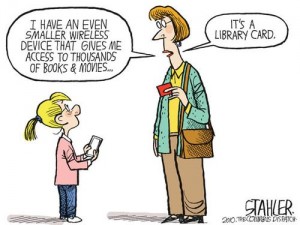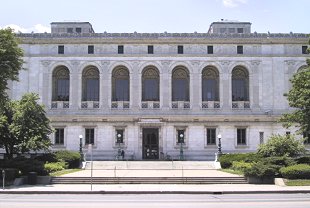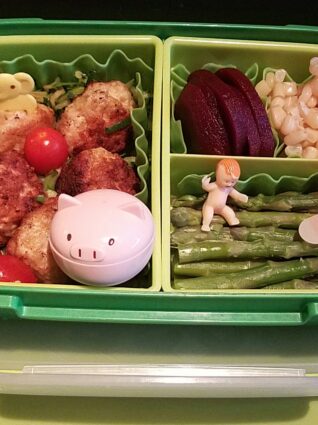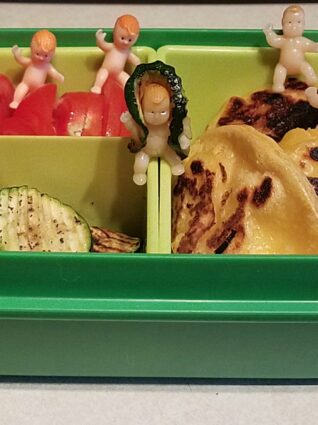The Digital Divide, or No Reader Left Behind
This content has been archived. It may no longer be relevant
Yeah, that is a pretty clever title.
For a little over five years, those who write (as well as those who think they can) have been bickering over the death of Print, as if it’s some bitter old Grand Dame too stubborn to finally croak and leave her millions of readers in their capable hands. When traditional publishing house Dorchester folded, it sounded to some like the Cloister Bell for all traditional publishers and when Borders closed its doors for the last time, there was premature dancing on the graves of analog books.
There is morbid gleeful giggling in camps of self-publishers who are exclusively digital as they point and say “See! We were right! We are the Future! The Future is US!” More and more self-published writers move to digital only format and sell their books for lessthan a cup of cafeteria coffee and claim that this is what the people want – cheap digital books, self-produced and (often) poorly edited.
While they are sending out their misspelled invitations to the Coming Out Party, they have left behind a large faction of readership – the poor, the disabled and the disadvantaged.
When I was wee, the library was where we lived during the summer months it was too hot to play outside. There was a branch just down Seven Mile that had a smell that was all at once foreign and comforting – recirculated dry air with a hit of camphor and mothballs. We could walk there if we promised to be especially careful crossing Livernois, and we often had to take our wagon, because the books we brought back to read would be too much for our little arms to carry home safely. New books were not in our budget. We attended private schools and it was all my parents could do to keep us enrolled and in clean uniforms. If we wanted something to read, and coming from a family of educators reading was as natural as breathing, we relied on our library cards. When I think about the authors introduced to me at the Sherwood Forest Branch (yes, that was the name of my subdivision and my library), I consider myself blessed – Anthony, Angelou, Morrison, Koontz, Matheson, Laymon, Anson, Kienzle. I read Nancy Drew Mysteries, Trixie Beldon, The Littlest Witch, The Halloween Tree, The Velveteen Rabbit, Watership Down, Harriet the Spy and The Secret of NIMH. When I found a book at the school library, I knew I could follow up at my home branch during school breaks. With one little laminated card that never needed recharging or encryption or a secret code. It was early networking (circa 1982) at its finest. My libraries made me the reader – and writer – I am today.
Last year, my writing group, GLAHW, hosted two free seminars on writing and publishing at the Detroit Main Branch. At the completion we donated hardcopies of our work. In other words, a small group of talented writers in the Metro Detroit Area has donated works into a system servicing not only Detroit, but also Member Libraries in the State of Michigan. Just like that, we can be read for free all over the State. That is thrilling.
Because we remember what it was like to be introduced to a new author we ultimately fell in love with.
Because we remember haunting the stacks and being lost for hours among millions of tales in thousands of books.
Because we remember that for so many young people, free access to books without tech or a connection should be a right, not a privilege.

So, look, you champions of a New Age of Self-Publishing Digital: when you claim that print is dead, I’d like you to take a moment and say to a wee child of 10 with her stack of books and her well-loved library card, “Sorry kid, this bandwagon is not for you. These tales are for people that can afford to read.”

What is this Brave new Face of eBook Self-Publishing doing about getting its books into the hands of those that can’t afford readers/ smartphones and the internet connection necessary to be read? In this race to the bottom for eBook price-points, what is being done to actually be read, not by someone who collects 99-cent ebooks like shallow men collect phone numbers of women they’ll never call, but by someone who would appreciate daring, thoughtful tales taking them to another world for just a little while?
*crickets*






0 Comments